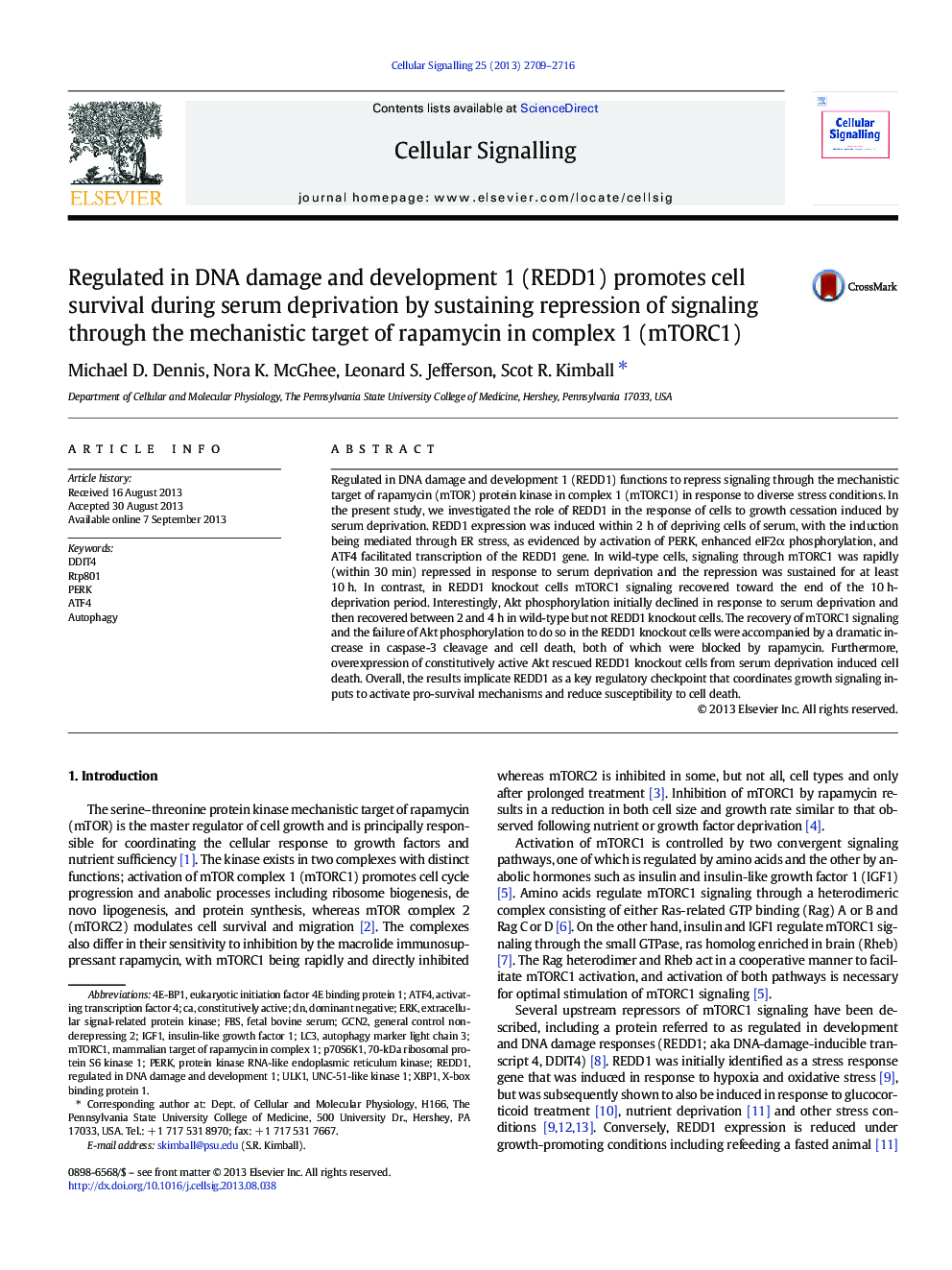| Article ID | Journal | Published Year | Pages | File Type |
|---|---|---|---|---|
| 10816156 | Cellular Signalling | 2013 | 8 Pages |
Abstract
Regulated in DNA damage and development 1 (REDD1) functions to repress signaling through the mechanistic target of rapamycin (mTOR) protein kinase in complex 1 (mTORC1) in response to diverse stress conditions. In the present study, we investigated the role of REDD1 in the response of cells to growth cessation induced by serum deprivation. REDD1 expression was induced within 2 h of depriving cells of serum, with the induction being mediated through ER stress, as evidenced by activation of PERK, enhanced eIF2α phosphorylation, and ATF4 facilitated transcription of the REDD1 gene. In wild-type cells, signaling through mTORC1 was rapidly (within 30 min) repressed in response to serum deprivation and the repression was sustained for at least 10 h. In contrast, in REDD1 knockout cells mTORC1 signaling recovered toward the end of the 10 h-deprivation period. Interestingly, Akt phosphorylation initially declined in response to serum deprivation and then recovered between 2 and 4 h in wild-type but not REDD1 knockout cells. The recovery of mTORC1 signaling and the failure of Akt phosphorylation to do so in the REDD1 knockout cells were accompanied by a dramatic increase in caspase-3 cleavage and cell death, both of which were blocked by rapamycin. Furthermore, overexpression of constitutively active Akt rescued REDD1 knockout cells from serum deprivation induced cell death. Overall, the results implicate REDD1 as a key regulatory checkpoint that coordinates growth signaling inputs to activate pro-survival mechanisms and reduce susceptibility to cell death.
Keywords
Related Topics
Life Sciences
Biochemistry, Genetics and Molecular Biology
Biochemistry
Authors
Michael D. Dennis, Nora K. McGhee, Leonard S. Jefferson, Scot R. Kimball,
